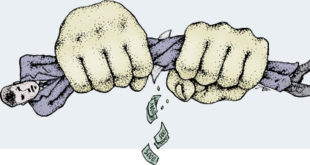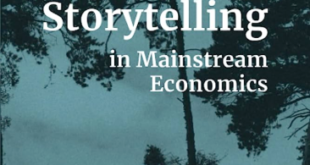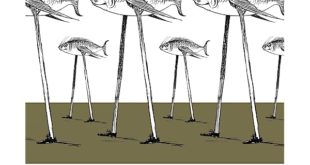Slavoj Žižek — discursive sausage for the uneducated As a young philosophy student in the United States in the early 1990s, I must admit that I was hoodwinked by this huckster and the system that promoted him … I devoured each book when it came out in the 1990s and early 21st century. I also followed on his heels by pursuing a Ph.D. under the direction of his intellectual father figure in Paris: Alain Badiou. However, as I continued to educate myself, I...
Read More »Dags för socialdemokratin släppa sin sparpolitik
Dags för socialdemokratin släppa sin sparpolitik Hela den här våren har jag väntat på att Magdalena Andersson ska gå från att göra en ”Hillary Clinton” till att göra en ”Joe Biden”. Från att fastna i identitetspolitik, vara kompetent och motståndare till SD – och förlora. Till att kombinera en svidande kritik av hotet mot demokratin med en ekonomisk investeringspolitik som Joe Biden gjort – och vinna … Till och med Svenskt näringsliv, Dagens industri med...
Read More »Where does money come from?
Where does money come from? .[embedded content]
Read More »What is this thing called probability?
What is this thing called probability? Fitting a model that has a parameter called ‘probability’ to data does not mean that the estimated value of that parameter estimates the probability of anything in the real world. Just as the map is not the territory, the model is not the phenomenon, and calling something ‘probability’ does not make it a probability, any more than drawing a mountain on a map creates a real mountain … In summary, the word ‘probability’...
Read More »Economists using ‘importantly wrong’ models
Economists using ‘importantly wrong’ models Mainstream economists who want to defend their use of models often quote statistician George Box, saying that “all models are wrong, but some are useful.” But the important lesson taken from Box ought to be another quotation from the same paper: “since all models are wrong the scientist must be alert to what is importantly wrong. It is inappropriate to be concerned about mice when there are tigers abroad.”...
Read More »Science and philosophy
La philosophie n’est pas une science, ni ne peut l’être. Prétendre le contraire, c’est la vouer immanquablement à l’échec, comme elle l’est en effet, mais aussi à l’illusion ou à la mauvaise foi … Il n’y a pas de démonstration philosophique, et s’il y en avait ce serait la fin de la philosophie – puisqu’elle ne se nourrit que de désaccords et d’incertitudes. Qu’est-ce que philosopher? C’est penser sans preuves, c’est penser plus loin qu’on ne sait, tout en se soumettant...
Read More »Eric Schüldt — en räddare i nöden
Eric Schüldt — en räddare i nöden I dessa tider — när ljudrummet dränks i den kommersiella radions pubertalflams — har man nästan gett upp. Men det finns ljus i mörkret. I programmet Text och musik med Eric Schüldt — som sänds på söndagsförmiddagarna i P2 mellan klockan 11 och 12 — kan man lyssna på seriös musik och en programledare som verkligen har något att säga och inte bara låter foderluckan glappa. Att få höra någon med intelligens och känsla tala om...
Read More »Beware of Monte Carlo simulations
Beware of Monte Carlo simulations In some fields—physics, geophysics, climate science, sensitivity analysis, and uncertainty quantification in particular—there is a popular impression that probabilities can be estimated in a ‘neutral’ or ‘automatic’ way by doing Monte Carlo simulations: just let the computer reveal the distribution … Setting aside other issues in numerical modeling, Monte Carlo simulation is a way to substitute computing for hand...
Read More »Daniel Ellsberg (1931-2023)
Daniel Ellsberg, a military analyst who after experiencing a sobbing antiwar epiphany on a bathroom floor made the momentous decision in 1971 to disclose a secret history of American lies and deceit in Vietnam, what came to be known as the Pentagon Papers, died on Friday at his home in Kensington, Calif., in the Bay Area. He was 92 … The disclosure of the Pentagon Papers plunged a nation that was already wounded and divided by the war deeper into angry controversy. It...
Read More »Noah Smith’s critique of heterodox economics — nothing but nonsense on stilts
Noah Smith’s critique of heterodox economics — nothing but nonsense on stilts One problem in applying skepticism and critical investigation equally is that heterodox and mainstream theories use extremely different methodologies. Generally speaking, mainstream macro uses math, while heterodox macro uses literary text with no math … Which means that if we judge each theory using its own methodology, mainstream macro will have to pass rigorous quantitative...
Read More » Lars P. Syll
Lars P. Syll







